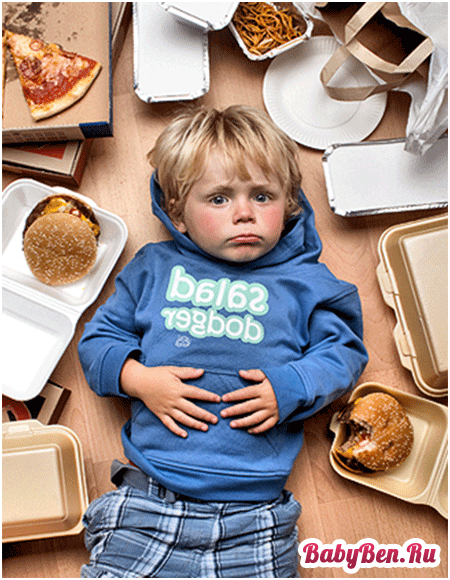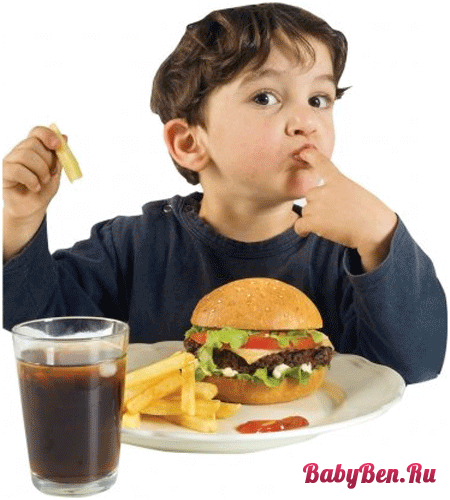
Harmful foods for children are those that, when used, can really cause serious harm to health. And if it comes to child health, then parents must know which products are unsafe for their children and why.

The content of the article
Why dangerous harmful products?
For child health, such substances are dangerous as:
• hydrogenated fats and sugar;
• Food colors and additives;
• Sodium, nitrites and nitrates.
In addition to the above, it is harmful to the child and such products that are subjected to multi-stage processing in the process of their production, which is why there is little useful in the final product.

What products are considered the most harmful to the children's body?
All harmful products can be collected in the top 10:
1. In the first place such harmful foods for children, like chips and sweet soda. The chips are "rich" by carcinogens - substances that provoke the development of oncologists and hydrogenated fats that increase the amount of cholesterol in the blood. Sweet soda is a mix of gases and synthetic sugar substitutes. Aspartame, which is part of the sodes, contains harmful melatonin, and besides, such drinks are not quenched thirst.
2. Fast food products. Harmful products for children are all sorts of Chebureks, Shawarma, Belyashi - everything that is fried in a large amount of vegetative oil. Power supply to such products leads to serious disorders of the gastrointestinal system. Fast food products such as crackers, flavored nuts, aromatized nuts are not less harmful.
3. Smoked and sausage products. Such products in their composition contains anything, but not meat - in sausages, spikes and dumplings full-full of dyes, soybeans and flavors. Smoked fish and meat products contain carcinogenic benzopyrin, and in smoked sausage there is a lot of unsafe phenol.
4. Products containing preservative, fruits and vegetables. Fruits and vegetables are very helpful both children and adults. But if they are produced in environmentally harmful conditions - close to a lively motorway or not far from a large industrial enterprise, a variety of carcinogens accumulate. Preservatives included in very many products in their composition contain "famous" sodium glutamate. The harmful effect of glutamate is manifested in headache, vascular spasms, in violation of the metabolic process.
5. Margarine and products with its content. Margarine is very harmful, as it is a transgenic fat. Therefore, all products containing it are harmful for children - puffs, cream cakes, cakes. Overbinding with such products leads to excess weight and impairment of metabolism, because they are oversaturated with sugars and fats.
6. Coffee and caffener-containing drinks, energy. Little children of coffee and caffery-containing drinks are better not to give. Otherwise, a child can "earn" various allergic reactions, nervous exhaustion, insomnia, kidney disease and much more.
7. Chewing gum. This is a "complex" of stabilizers, dyes, preservatives, thickeners and other harmful chemistry. For the same reason, jelly candies are harmful.
8. Mayonnaise and ketchups. Many mayonnaise beloved is a product containing transgenic carcinogenic fats that increase the blood cholesterol levels, and also unsafe stabilizers and preservatives. For the same reason, it is impossible for children to give ketchups, as well as a variety of store sauces.
9. Chocolate bars. Contrary to advertising promises, such bars produce not only of nuts, nuts, caramels, coconut chips, but also with the addition of chemical additives and from genome-edified products.
10. Ice cream, home blanks. Favorite for many children and adult ice cream contains many flavors, thickeners, and instead of cream, unscrupulous manufacturers use cheap, but not safe palm oil. The result is a violation of metabolism and excess weight. Home billets can only be given if they are prepared with strict compliance with hygiene and sterilization rules.

The selection of food for your child should be applied with full responsibility and caution, since the children's body is more susceptible to harmful substances contained in food.
